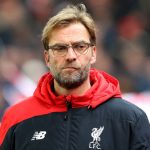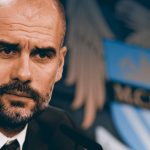It so often happens in football that one player’s misfortune is another’s opportunity, and it was, to an extent, the case for Manchester United’s Marcus Rashford back in February 2016. Anthony Martial injured himself in the warm-up ahead of United’s Europa League showdown with Danish side Midtyilland, and Rashford, 18 years old at the time, was named by manager Louis van Gaal as the player to step into his shoes. The youngster took his chance in style as his second-half brace made him the youngest United player to score in European competitions ever.
He followed that up with a Premier League brace (and an assist) against Arsenal in March, and scored the goal that brought United victory in a Manchester Derby at the Etihad.
Despite winning the FA Cup that season, following the elimination from Europe in the quarterfinals at the hands of arch-rivals Liverpool and the failure to qualify for next season’s Champions League, van Gaal was sacked at the end of the season and Jose Mourinho took his place.
However talented Rashford might be, the Portuguese wasn’t keen on the idea of having such a young player as his first-choice striker, and United signed Zlatan Ibrahimović on a free transfer on a 12-month deal the following summer.
It still wasn’t a bad situation for Rashford. The presence of the experienced Swedish star helped take some pressure off his shoulders. United won the Europa League and qualified for the Champions League the following season despite finishing sixth in the Premier League. Having acted as the understudy to Ibrahimović for a year, it was to be expected Rashford would now be given a proper go, but Mourinho wasn’t finished with marquee signings. Instead of promoting youth, United not only extended Ibrahimović’s contract for further 12 months, but they also spent £75 million on Everton’s Romelu Lukaku.
The acquisition of the Belgian international can hardly be construed as a miss given the impact it had in his first season at the club and his overall usefulness that holds to this day, but from Rashford’s perspective, it was certainly not good news.
However, at some point Mourinho lost faith with Martial, and chose to convert Rashford into a winger which made it possible to play alongside Lukaku. But the signing of two more established strikers rather than taking a chance on him showed him that the manager simply lacked faith in his ability to lead the line up front, and it certainly had an impact on his confidence – a crucial aspect of a striker’s game.
Ibrahimović left the club last year, but Mourinho’s problems with Martial persisted and Rashord remained deployed wide for a while longer. Not until the club lost patience with the three-time Premier League winning tactician would Rashford be given a run in the central attacking role.
One of the first things Ole Gunnar Solskjaer did was put the youngster back into his natural position, ahead of Lukaku. Once he felt the trust placed in him, his form exploded and United got off to a winning run.
His quality has shown through since, and even though that form still had its ups and downs, it’s only to be expected from a player of his age. The comparisons with Paris Saint-Germain’s wonderkid Kylian Mbappe, the second most-expensive player in the world, that the English media occasionally put forth have perhaps been off the mark; after all, the speed with which Mbappe has developed is something that doesn’t happen very often. But the Manchester United forward is an exciting talent in his own right.
Whether Solskjaer retains his place after this season or not, giving Rashford the time and the exposure he needs to develop into a top class striker would likely be a wise move.
- Soccer News Like
- Be the first of your friends!




















